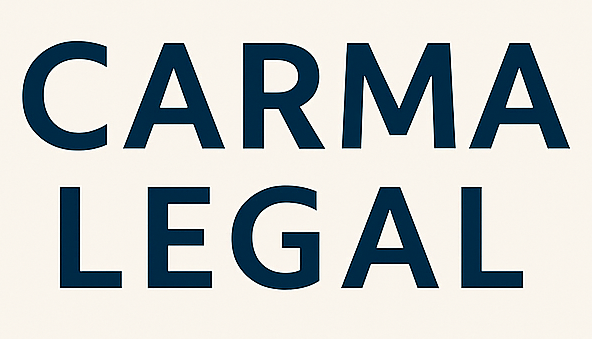Introduction
Working with an estate planning attorney gives you peace of mind knowing that your wishes are legally documented and your loved ones are protected. A skilled attorney helps you navigate state and federal requirements, draft enforceable documents, and tailor a comprehensive plan that reflects your goals. By taking a proactive approach, you reduce the risk of disputes, minimize tax burdens, and avoid costly probate procedures.
An experienced estate planning lawyer guides you through wills, trusts, powers of attorney, and advance directives. Whether you own a family business, have minor children, or wish to make charitable gifts, your attorney provides clear advice and handles the complex legal details. Throughout this article, you will learn how an estate planning professional simplifies your future, offering actionable steps to secure your legacy.
Role of estate planning attorney
Defining the legal role
An estate planning attorney is a licensed lawyer who specializes in helping individuals plan for incapacity and manage asset distribution after death. They combine legal knowledge with financial insight to create strategies that protect wealth, address healthcare preferences, and handle guardianship issues. Your attorney ensures that your plan meets state-specific statutes, reducing potential challenges during probate.
Key services offered
- Asset inventory and valuation
- Drafting wills and trusts
- Establishing powers of attorney
- Creating advance healthcare directives
- Tax planning and gift strategies
- Probate avoidance planning
By offering these services, your estate planner helps you avoid legal pitfalls and ensures your documents comply with current laws.
Plan proactively for your future
Benefits of early planning
Taking action now means you can adapt your plan to life changes such as marriage, divorce, birth of a child, or significant financial shifts. Early planning:
- Locks in exemption amounts before inflation adjustments
- Reduces stress on your family by clarifying your wishes
- Preserves your assets against creditors and unintended heirs
- Allows charitable giving aligned with your values
Avoiding common pitfalls
Without professional guidance, you risk drafting documents with errors that may render them unenforceable. Many DIY forms lack the nuance required for unique circumstances, potentially leading to disputes or unintended tax liabilities [1]. Engaging an attorney ensures you cover:
- State-specific witness and notarization requirements
- Proper identification of beneficiaries and trustees
- Coordination between wills and trust provisions
Draft essential legal documents
Creating your last will
A will dictates how you want to distribute your assets, name guardians for minor children, and appoint an executor. Working with a last will and testament attorney guarantees:
- Accurate naming of beneficiaries
- Clear statements for asset division
- Appointment of trusted executors and guardians
Setting up living trusts
Trusts move assets outside probate, offering privacy and faster distribution. Your attorney can help you select the right trust type:
| Trust type | Purpose |
|---|---|
| Revocable trust | Flexible asset management during lifetime |
| Irrevocable trust | Asset protection and tax planning |
| Special needs trust | Support for beneficiaries with disabilities |
| Family trust | Centralized management for multiple heirs |
Revocable trust advantages
A revocable trust lets you maintain control over assets, amend terms, or revoke the trust at any time. You can name a successor trustee to manage your estate if you become incapacitated. Consult a revocable trust lawyer to tailor this flexible solution.
Irrevocable trust benefits
An irrevocable trust removes assets from your taxable estate, potentially reducing estate tax liabilities and shielding wealth from creditors. Speak with an irrevocable trust attorney to explore options such as life insurance trusts or charitable trusts.
Establishing powers of attorney
Powers of attorney grant trusted individuals authority to act on your behalf. Your attorney can draft:
- Medical power of attorney: assigns healthcare decisions [2]
- Financial power of attorney: handles banking and asset management [3]
Each document should specify when it becomes effective, either immediately or upon incapacity. Clear drafting avoids confusion for family and healthcare providers.
Crafting advance directives
Advance directives allow you to outline your medical care preferences and appoint a healthcare agent.
Living will specifics
A living will details your wishes for life-prolonging treatments, organ donation, and Do-Not-Resuscitate orders. An advance directive lawyer ensures your document meets state requirements and reflects your values.
Minimize taxes and liabilities
Federal estate tax basics
Under current law, the federal exemption is $13.9 million per individual, meaning estates valued below this amount are not subject to federal estate tax. Estates in excess of the exemption face rates from 18 to 40 percent [4]. Your attorney stays up to date on annual adjustments and advises you accordingly.
Strategies to reduce estate taxes
Your estate planner can implement a mix of gifting, trust structures, and valuation techniques:
Gifting and transfers
- Annual exclusion gifts: individuals can gift up to $18,000 per recipient without gift tax
- Lifetime exemption: transfer up to the unified credit amount above annual gifts
- Marital transfers: unlimited transfers to a spouse under the unlimited marital deduction
Trust-based tax planning
- Irrevocable life insurance trusts: exclude life insurance proceeds from your estate
- Qualified personal residence trusts: transfer home ownership while retaining usage rights
- Charitable remainder trusts: generate income during life and support charity later
These tools help you reduce taxable estate size while aligning with your philanthropic and family goals.
Protect assets and avoid probate
Using asset protection trusts
Asset protection trusts shield your wealth from potential creditors and lawsuits. An asset protection trust attorney can set up domestic or offshore structures that limit liability while preserving benefit access under specific conditions.
Designing probate avoidance plans
Probate can be time-consuming and public, potentially exposing your assets to creditors and disputes. A skilled attorney employs strategies such as:
- Joint ownership with right of survivorship
- Payable-on-death designations for financial accounts
- Transfer-on-death deeds for real estate
- Funding living trusts prior to death
These measures allow your heirs to bypass probate court, speeding up distribution and reducing legal costs. For tailored solutions, consult a probate avoidance estate planning lawyer.
Navigate complex family situations
Blended families and second marriages
Blended families often require special planning to balance the interests of current spouses and children from prior relationships. Your attorney can craft:
- Qualified terminable interest property trusts (QTIP)
- Life estate reservations
- Separate share trusts
These structures ensure that both a surviving spouse and children receive intended benefits.
Special needs and heirs
If you have a loved one with disabilities, a special needs trust preserves eligibility for government benefits while providing supplemental support. A special needs trust lawyer can set up a trust that complies with Social Security and Medicaid rules.
Choose the right attorney
Credentials and experience
When evaluating estate planners, look for:
- Board certification in wills, trusts, and estates (where available)
- Membership in the American College of Trust and Estate Counsel (ACTEC) [5]
- Positive Martindale Hubbell or similar peer reviews
Understanding fee structures
Attorneys may charge a flat fee for simple documents or hourly rates for complex planning. According to NOLO, hourly rates range from $250 to $350 per hour, while a simple will may cost $150 to $200 [6]. Always request a written fee estimate to avoid surprises.
Preparing for your consultation
Before meeting an estate planning law firm, gather:
- List of assets and approximate values
- Family information, including beneficiaries and guardians
- Prior estate planning documents, if any
- Questions about specific planning goals and concerns
Work with your attorney
Gathering necessary information
To streamline the process, provide your attorney with:
- Titles, deeds, and account statements
- Business ownership documents and partnership agreements
- Insurance policies and retirement account details
- Existing powers of attorney or healthcare directives
This information helps your attorney draft accurate and comprehensive documents.
Reviewing and updating plans
Life events such as marriage, divorce, birth of a child, or significant financial changes require plan revisions. Schedule periodic reviews to:
- Confirm beneficiary designations
- Adjust trust funding and distributions
- Update healthcare preferences
Regular updates ensure your plan remains aligned with your current circumstances.
Simplify your future
Working with an estate planning attorney transforms a complex task into a manageable process. By drafting clear, state-compliant documents and implementing proactive strategies, you protect your family, reduce tax burdens, and avoid costly probate. Take control of your legacy today by consulting a comprehensive estate planning lawyer. Your future self and your loved ones will thank you.








